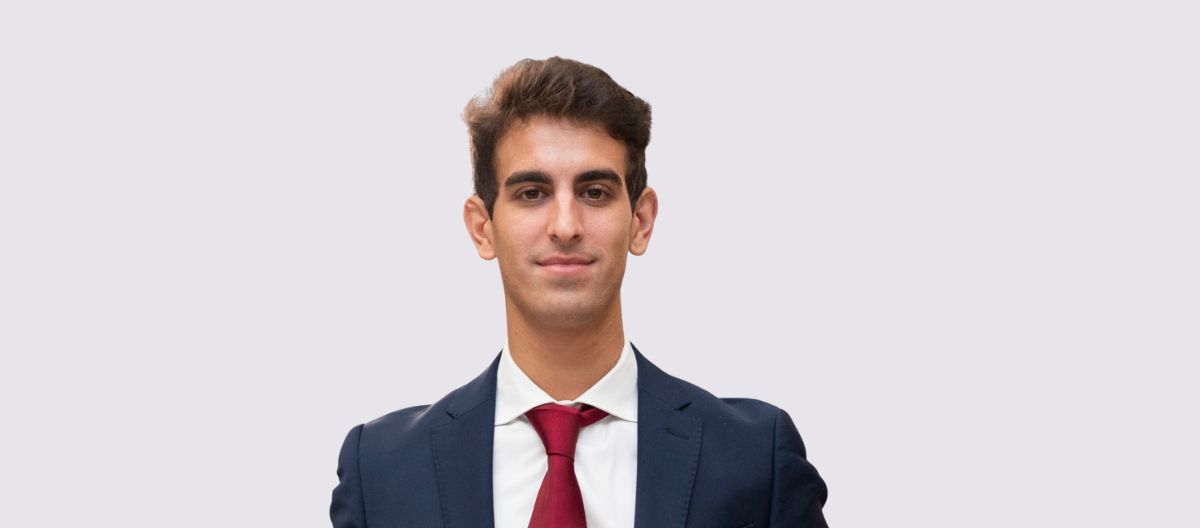
From Theory to Practice in Retail Management with Bologna Business School: The Journey of Alumnus Manuel Leotta
12 November 2024Manuel Leotta, currently Trade Marketing Specialist at Biochimica SpA, decided to further his education with the Master in Business Management – Retail Management & E-commerce at Bologna Business School. After earning a bachelor’s degree in Business Administration and a master’s degree in Professional and Business Administration, Manuel felt the need to specialize further in the Retail and E-commerce sector, in response to the complex and rapidly evolving market challenges. In this interview, he shares how this Master has helped shape his professional path.
What led you to pursue further studies with a Professional Master, and why did you choose the Master in Gestione d’Impresa – Retail Management & E-commerce at Bologna Business School?
The decision to pursue a Professional Master was a well-considered choice, developed after my academic journey and initial work experiences. After earning my bachelor’s degree in Business Administration and my master’s degree in Professional and Business Administration, I had the opportunity to work during my graduate studies in the Commercial & Marketing area within a Bologna-based company operating in the Retail and E-Commerce sector. This work experience allowed me to acquire practical skills, but it also highlighted the need to specialize further in the Retail sector, due to the complex challenges currently posed by the market, a field that is rapidly evolving and increasingly influenced by digital transformation. Choosing the Master in Gestione d’Impresa – Retail Management & E-commerce at Bologna Business School represented a training path for me that combined the in-depth study of traditional and modern sales strategies with the innovation offered by E-commerce and new digital technologies. The reputation of the school and its practical approach, through various types of Case Studies and Project Work, were decisive factors in my choice, as I wanted a program that would prepare me concretely for the challenges of the modern market, projecting me into the workforce quickly and effectively.
Can you provide an example of a project or practical activity carried out during the Master that had a significant impact on your training?
During the Master, one of the most formative moments was the Company Project Work, dedicated to developing an Omnichannel strategy for a company in the Retail sector. This project was a significant challenge, as it required us to integrate physical and digital sales channels to create a consistent and seamless user experience. Thanks to the classroom training, supported by case studies and lessons taught by industry professionals and experts, I was able to apply the theoretical knowledge acquired and transform it into practical solutions. The project had a significant impact on my training, as it allowed me to directly tackle the complexities of managing the omnichannel aspects of a company, a growingly crucial element in today’s Retail world. This experience also taught me the importance of collaboration and teamwork in real corporate contexts, elements that I consider essential for my professional development.
How have you applied the knowledge and skills acquired in the Master to your recent professional experience at Montenegro?
In my role at Montenegro, working with the Trade Marketing team in the Large-Scale Retail Trade (GDO) division, I was able to directly apply many of the skills acquired during the Master. In particular, the knowledge gained during the Retail Management & E-commerce course, as well as those developed in Category Management, proved fundamental for the activities I have carried out over the past few months. Specifically, within my work experience, I have been responsible for improving the visibility and consumer engagement of various product categories within the Spirits sector, ensuring their presence in both physical retail stores and on online platforms, using targeted and innovative Trade Marketing and Category Management strategies, drawing from the techniques learned during the training. This has contributed to improving sales performance and, most importantly, the brand perception among consumers. The experience at Bologna Business School, characterized by a practical and business-oriented approach, provided a solid theoretical foundation that I was able to apply in real work contexts and projects, significantly contributing to the achievement of the business objectives I was assigned.
How do you see the Retail sector evolving in the coming years, and what skills do you think will be essential?
The Retail sector is set to evolve ever more rapidly and dynamically in the coming years, with increasing integration between physical and digital experiences. Personalization of the customer experience and omnichannel strategies will become key factors for companies aiming to maintain their competitiveness. Consequently, the essential skills will be those related to data analysis, crucial for understanding consumer behavior and adapting strategies quickly and effectively. It will also be essential to develop a capacity for continuous innovation, not only in technologies but also in marketing strategies. Sustainability and a focus on the user experience will also be central themes, as consumers are increasingly aware of the social and environmental impact of their purchasing choices. In summary, in my opinion, the future of retail will require professionals capable of combining a solid knowledge of new technologies with a flexible and innovation-oriented approach, aspects that will be crucial in addressing the challenges within a continually evolving sector.
